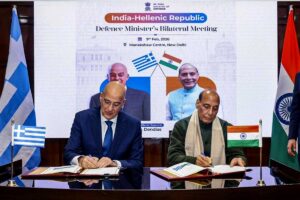Declassified Romanian intelligence documents, which formed the basis for the cancellation of the recent presidential election results, do not provide evidence of foreign interference or manipulation, according to an analysis of the documents the Romanian intelligence docs fail to prove election interference.
Key Findings of the Documents
The documents detail a social media campaign supporting Călin Georgescu, which involved around 25,000 TikTok accounts coordinated through a Telegram channel, paid influencers, and organized messaging.
However, the scale of the campaign appears relatively small for a national presidential race. The documents mention that about 130 TikTok accounts generated between 1,000 and 500,000 views per video, but do not provide comprehensive engagement data or prove any significant influence on voters.
Importantly, the activities outlined in the documents could be interpreted as legitimate digital marketing rather than foreign manipulation. While the documents suggest that the campaign’s structure “correlates with a state actor’s operating mode,” they do not provide concrete evidence of foreign involvement. Instead, the report draws comparisons to alleged Russian influence operations in Ukraine and Moldova, without establishing any direct link.
The payment rates mentioned for influencer marketing—400 lei per 20,000 followers and 1,000 euros per promotional video—are typical market rates. Although some payments were allegedly made illegally after the campaign period, the individual accused of this, Romanian crypto entrepreneur Bogdan Peschir, has denied the allegations (https://realitatea.net/stiri/actual/cel-mai-hulit-tiktoker-din-romania-se-apara-este-un-fals-nu-am-finantat-campania-lui-calin-georgescu_6751dcef8681aa0c3c439f52). The use of Telegram for coordination and posting guidelines is common in modern political campaigns.
Absence of Evidence of Foreign Manipulation
The documents do not provide any technical evidence of artificial amplification, fake accounts, or coordinated manipulation. There is no clear distinction made between legitimate campaign activity and malicious interference. While the documents suggest that the campaign resembles Russian tactics, they do not substantiate these claims with solid evidence.
One notable observation is that some of the accounts involved were created in 2016 but only became active recently. This is considered normal behaviour as individuals often become politically engaged during election periods.
Although the documents highlight that Georgescu’s popularity increased during the campaign period, they do not establish a direct link between the social media campaign and his rise in support. Other factors, such as his policy positions, traditional campaigning, media coverage, public appearances, or dissatisfaction with other candidates, could have also played a role.
Implications of the Election Cancellation
The cancellation of an entire presidential election based on the existence of a social media campaign raises significant concerns. The documents do not prove the campaign was effective, merely that it existed. In effect, the Romanian court annulled the election results based on the mere presence of coordinated social media activity, which was claimed—without concrete evidence—to resemble Russian tactics.
The idea you can cancel an election because the winner benefited from a TikTok campaign that intel agencies allege was “similar” to Kremlin influence operations doesn’t even rise to tin-pot dictator level. The abrogation of democracy is almost being rubbed in people’s faces.
This sets a troubling precedent where elections could be invalidated not due to proven fraud or manipulation, but because authorities find organised social media campaigning suspicious. Such a precedent could undermine the democratic process, allowing unfounded fears of foreign interference to override voters’ choices.












